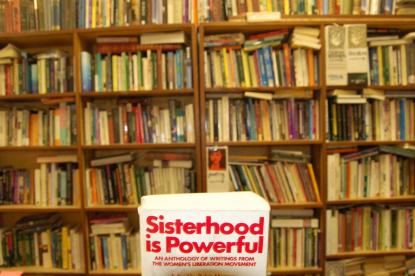
So, this week I published a piece on Huffington Post the gist of which is this: I had an abortion at 17 and while there were hard parts to it, the process—mostly, I’m talking about access to the procedure—was far easier than it would be if I found myself time-travelling and in the same position now (as a teenager, thus the magical aspect).
Cutting to the chase, the main reason I say it’s harder now to be a minor seeking an abortion is this rather large hurdle: parental consent laws. In order to obtain an abortion you must either get your parents’ okay or go to a judge and say why you can’t tell your parents (so the judge may grant you a bypass from this step).
As a pretty self-possessed teenager, I can tell you this: I did not in a zillion years want to be bullied into telling my (admittedly liberal and understanding) parents (well, I didn’t tell my dad at the time so I guess I wasn’t 100% sure he’d be understanding, although I suspect he would have been) and I did not in a zillion-plus years want to go in front of a judge and ask permission not to tell my parents and to have an abortion.
Because imagine me back then: I was pretty overwhelmed by nausea and who would find out and where would I obtain this procedure and… it’s hard to imagine finessing the combination of logistics for yet another weekday event and the bravery for managing that appearance in court. The only time I’d ever been inside a court room by then was to see my grandmother argue a case (in front of the Supreme Court, which, yeah, very cool). Before the trip to Planned Parenthood I’d never seen a doctor without a parent escort. That’s a lot—all at once.
Bravery is going in front of a judge to say yes, I’ve thought about this, and no I cannot tell my parents (likely because they would disapprove or this occurred because someone within my family hurt me and I can’t tell or they’d make a decision I can’t live with or they’d kick me out of the house) and I need to obtain this procedure.
I did not have to do this. I also wrote about how grateful I was to the gynecologist for urging me to tell my mother, because she was extremely supportive and I did need her help, because I was indeed young and in over my head.
**
Thirty years later abortion has become such a hot button issue that my telling about this dumb teenage mistake—starting to have sex before I’d gotten contraception in place (river, Egypt, like that)—really shouldn’t be a big deal. So how fascinating it is to me that in writing this piece the word people keep using about it is “brave.” I’m brave for telling.
**
I’ve been telling this story for a long time, now. The first time I told it I was a student at Hampshire College and we organized a Speak-Out about Abortion. Abortion rights were at risk (what else is new?). We thought telling our stories, as women did before abortion became legal, could serve to remind people that equality was at stake. At that first Speak Out, we had perhaps 25 people, maybe 50. Facing my audience, I felt really nervous. I believed my story was important and this carried me through the telling. When I’d told, I felt brave—and glad.
Learning that at times the simplest thing—sharing a story—can get people to reframe something theoretical by making it personal has led me to tell my story many times over (even on Oprah). I so strongly believe that every woman should have agency over what happens to her own body, because in certain moments body and life are essentially one and the same.
That Hampshire College Speak-Out we begun in the early 1980’s has become the Friday night kick-off to the big (practically giant) annual reproductive justice conference, which will draw over 1000 people next month. Standing in front of 500 people, especially the women who’ve never spoken aloud about their stories, that’s brave.
At this point, I hope I tell my story well. I hope it’s useful. I hope (against hope) that women’s stories gain enough importance to be used when lawmakers decide upon bills that will affect women’s (and all of our) futures.

